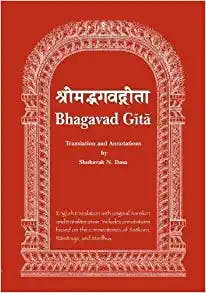
Bhagavad Gita: English translation with annotations based on the commentaries of Śaṅkara, Rāmānuja and Madhva ācāryas.
Three classical interpreters of Bhagavad Gita: Sankara, Ramanuja, and Madhva acaryas, have so influenced the course of Hindu thought, that a modern student who reads the Gita with an eye to these three commentators will have obtained a balanced exposure to the theological expanse of the work. It is the nature and beauty of the Sanskrit language that it invites multiple interpretations. Dr. Shukavak's solution to this problem has been to utilize a system of annotation in the form of footnotes, which allows him to make a particular translation and then to show an alternative translation or interpretation when it is appropriate. The system of annotation utilizes the commentaries of Sankara, Ramanuja, and Madhva acaryas. Dr. Shukavak has translated Bhagavad Gita in a scholarly way, but not so scholarly that the general reader will find it obscure. Moreover, it is written from a perspective in which the Gita appears as much more than a work of world-class literature, but as a living religious text meant to inspire faith in the Divine. If you only read one book of Hindu scripture-let that be Bhagavad Gita. Even though it can be read in just a few sessions, it captures the very essence of Hindu thought. Hardcover ISBN: 978-1-889756-34-9 ($29.95 $25.95). Paperback ISBN: 978-1-889756-32-5 ($19.95 $15.95). EPUB ISBN: 978-1-889756-09-7.
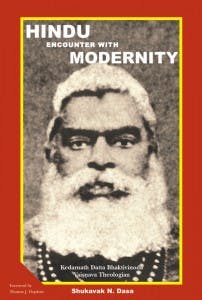
Hindu Encounter with Modernity: Kedarnath Datta Bhaktivinoda, Vaiṣṇava Theologian
Bhaktivinoda envisioned the modern Hindu as the saragrahi (essence seeker), one who could appreciate the truth held within all religious perspectives. In this well-researched, comprehensive, and objective study Dr. Shukavak systematically examines Bhaktivinoda’s reinterpretation and application of Hinduism in the context of rational thought. This book explores the challenges and opportunities faced by Hinduism in the modern world, offering insights into how ancient wisdom can be applied to contemporary issues. Hardcover ISBN 978-1-889756-30-1. EPUB ISBN 978-1-889756-10-3

Ganga Flows West: A Hindu Primer
An introduction to Hindu philosophy and practice, designed for Western readers seeking to understand the essence of Hinduism.
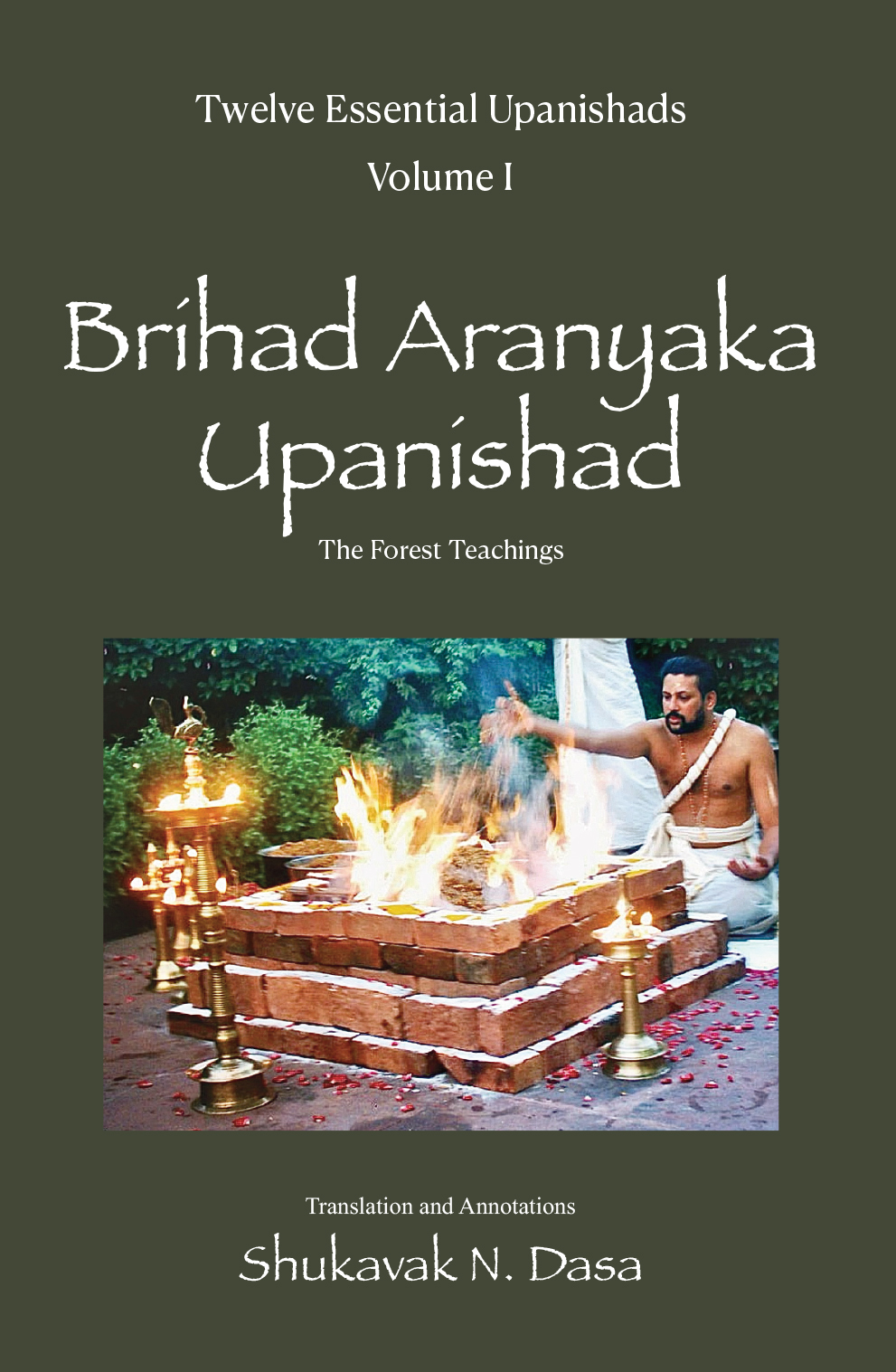
Twelve Essential Upanishads Volume I: Brihad Aranyaka Upanishad, The Forest Teachings
"The Brihad Aranyaka Upanishad focuses on the fire sacrifice (agni-hotra), which shapes the worldview of ancient Vedic culture. The fire sacrifice becomes a metaphor for the universe. The heavens, sky, earth, man and woman are seen as altars of burning fire. All life is a sacrificial fire. Feed that fire! The Brihad Aranyaka Upanishad, also known as the ""Great Forest Upanishad,"" holds a prominent place among the principal Upanishads, which form the foundation of Hindu spiritual thought. Though part of the oldest Hindu traditions, the concepts are not bound by geography and historical time, or even Hinduism itself. They are human and universal teachings which offer valuable insights and serve as a comprehensive source of knowledge for seekers of truth." Hardcover ISBN 978-1-889756-03-5. Paperback ISBN: 978-1-889756-00-4 ($19.95 $15.95). EPUB ISBN: 978-1-889756-02-8
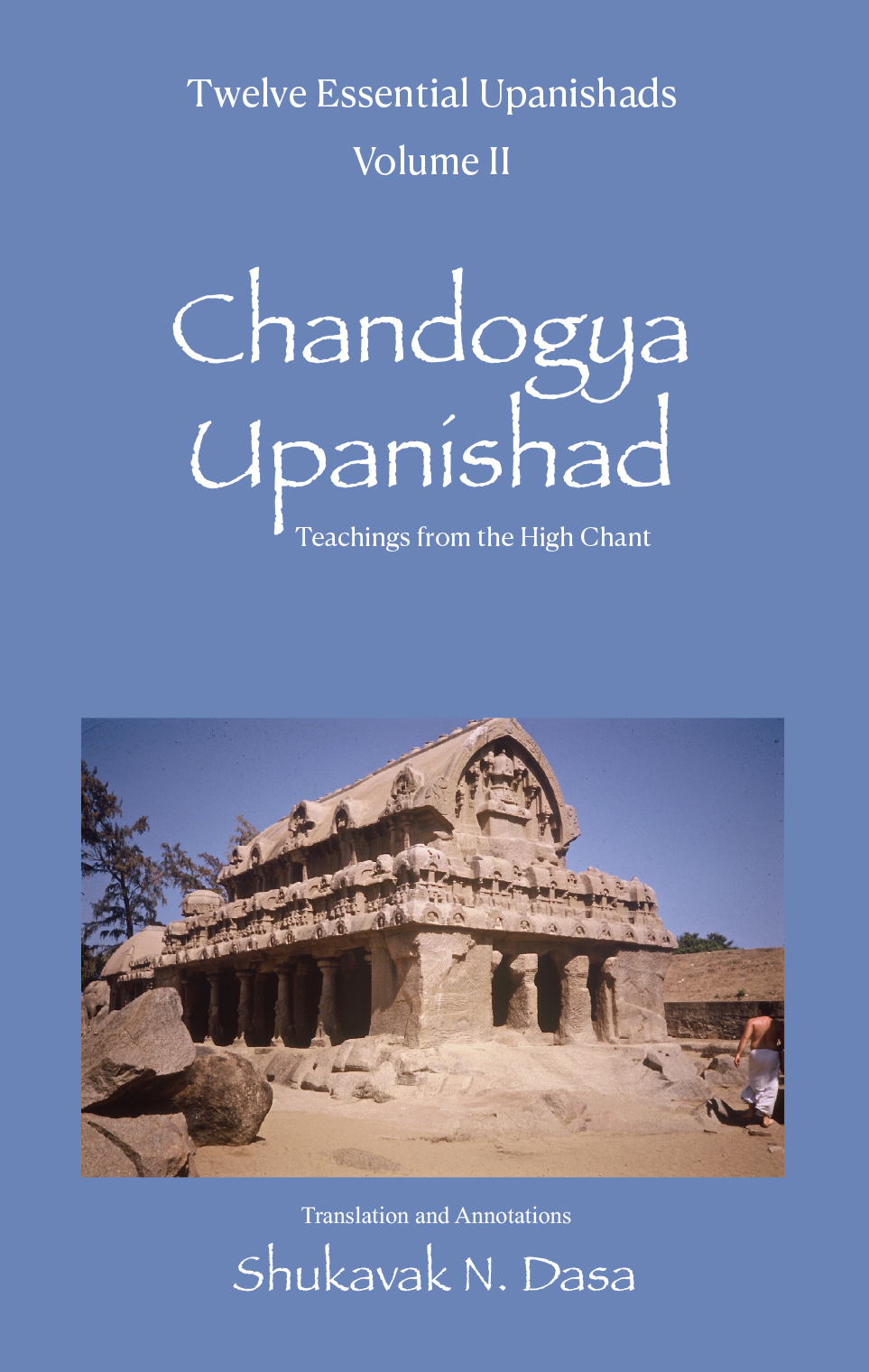
Twelve Essential Upanishads Volume II: Chandogya Upanishad, Teachings from the HIgh Chant
Chandogya Upanishad is the second of the two major Upanishads. Its central theme is the correspondence between the cosmos and the fire ritual as it is fashioned around the High Chant. “Chāndogya” means the “singer of the chandas,” chandas being the hymns of the Sama Veda, and gya means to sing. ISBN 978-1-889756-33-2. Paperback $19.95 $15.95
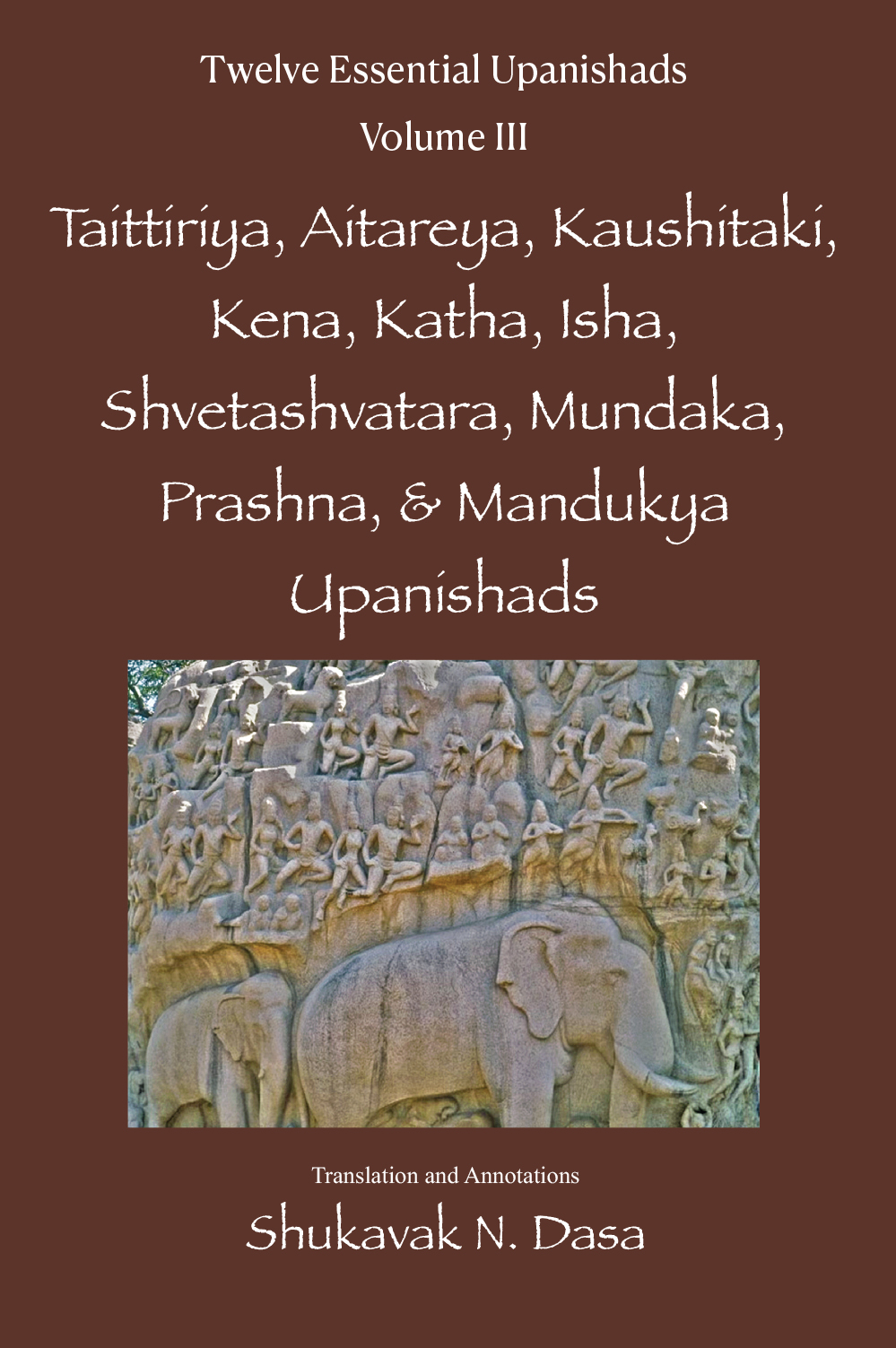
Twelve Essential Upanishads Volume III: Taittiriya, Aitareya, Kaushitaki, Kena, Katha, Isha, Shvetashvatara, Mundaka, Prashna, and Mandukya Upanishads.
Volume III consists of ten Upanishads. Seven are analytical. Taittiriya Upanishad explores the five kośas or “containers” that make up our existence in this physical world: food, breath, mind, intellect, and joy. The Mandukya examines four states of awareness: a waking state, a dream state, a deep sleep state, and a mystical state. Kaushitaki, Isha and Shvetashvatara Upanishads are devotional as they offer prayers to that ultimate power brahma for salvation and protection in this world. They are the precursors of devotion (bhakti) best found in a later work, the Bhagavad Gita, which is highly theistic in its devotion to Krishna. ISBN 978-1-889756-04-2. Paperback $19.95 $15.95